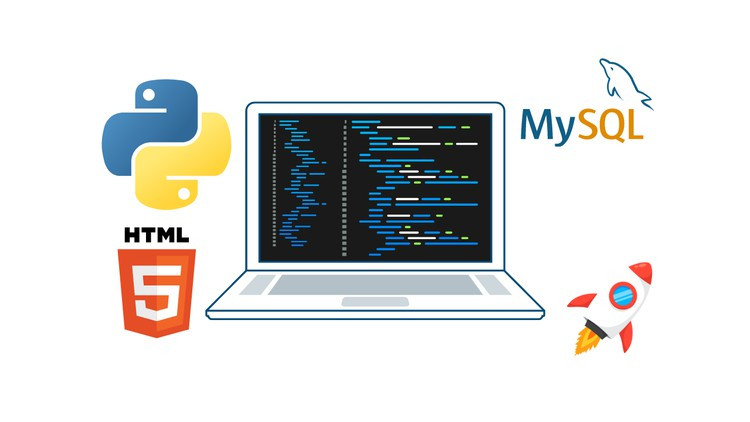In C++, the modulo operator % is used to find the remainder when one number is divided by another. This operation is widely used in programming for tasks such as determining even or odd numbers, looping through sequences, and working with cyclic patterns. Understanding how to find the remainder of two numbers is a basic but important skill for beginners, as it introduces concepts like integer arithmetic and operators. Writing simple C++ programs using modulo helps you practice variables, input/output, and logic in an easy-to-understand way.

with hands-on learning.
get the skills and confidence to land your next move.
Program 1: Find Remainder of Numbers Entered by the User
This program takes two numbers from the user and calculates the remainder, teaching beginners how to handle input and use the modulo operator.
#include <iostream>
using namespace std;
int main() {
int num1, num2, remainder;
cout << "Enter the first number: " << endl;
cin >> num1;
cout << "Enter the second number: " << endl;
cin >> num2;
if (num2 != 0) {
remainder = num1 % num2;
cout << "The remainder when " << num1 << " is divided by " << num2 << " is " << remainder << endl;
} else {
cout << "Division by zero is not allowed." << endl;
}
return 0;
}In this program, the user inputs two numbers, and the program calculates the remainder using %. The result is stored in a variable and displayed. This helps beginners understand how modulo works and reinforces concepts like integer division and error checking.
Program 2: Find Remainder Using a Function
This program demonstrates how to use a function to calculate the remainder, making the code organized and reusable.
#include <iostream>
using namespace std;
int findRemainder(int a, int b) {
if (b != 0) return a % b;
else return -1; // returns -1 if division by zero
}
int main() {
int num1, num2;
cout << "Enter the first number: " << endl;
cin >> num1;
cout << "Enter the second number: " << endl;
cin >> num2;
int remainder = findRemainder(num1, num2);
if (remainder != -1) {
cout << "The remainder when " << num1 << " is divided by " << num2 << " is " << remainder << endl;
} else {
cout << "Division by zero is not allowed." << endl;
}
return 0;
}Here, the remainder is calculated inside a function called findRemainder. This approach demonstrates the use of functions for organizing code and making it reusable. Beginners can see how to separate logic from input/output and how to handle exceptions like division by zero.
Program 3: Find Remainder Without User Input
This program calculates the remainder of numbers defined directly in the code, allowing beginners to focus on the modulo operation.
#include <iostream>
using namespace std;
int main() {
int num1 = 25;
int num2 = 4;
int remainder = num1 % num2;
cout << "The remainder when " << num1 << " is divided by " << num2 << " is " << remainder << endl;
return 0;
}In this program, the numbers are assigned directly to variables. The modulo operator % calculates the remainder, and the program displays the result. This version is simple and useful for beginners who want to focus purely on understanding the modulo operation without user input.
Program 4: Find Remainder of Numbers Directly Without Variables
This program calculates the remainder directly in the output statement without using variables, providing the simplest demonstration of modulo.
#include <iostream>
using namespace std;
int main() {
cout << "The remainder when 10 is divided by 3 is " << 10 % 3 << endl;
return 0;
}Here, the modulo calculation happens directly inside the cout statement. This is ideal for beginners to quickly see how the remainder operator works without introducing variables or extra code.
Program 5: Find Remainder of Numbers Stored in Variables Without Storing Remainder
This program stores numbers in variables but calculates and displays the remainder directly, showing flexibility in using variables.
#include <iostream>
using namespace std;
int main() {
int num1 = 17;
int num2 = 5;
cout << "The remainder when " << num1 << " is divided by " << num2 << " is " << num1 % num2 << endl;
return 0;
}In this program, num1 and num2 hold the numbers, but the remainder isn’t stored in a separate variable. The modulo calculation happens directly inside the cout statement, which teaches beginners that storing results in a variable is optional for simple calculations.
Program 6: Find Remainder with One Stored Variable and One Direct
This program demonstrates how to calculate the remainder using one variable and one number used directly, showing concise code flexibility.
#include <iostream>
using namespace std;
int main() {
int num1 = 23;
cout << "The remainder when " << num1 << " is divided by 4 is " << num1 % 4 << endl;
return 0;
}Here, num1 holds one number, while 4 is used directly. The remainder is calculated inside the cout statement without storing it in a separate variable. This teaches beginners that they can mix variables and direct numbers to keep code short and readable.
Program 7: Find Remainder of More Than Two Numbers
This program shows how to find the remainder in a sequence of numbers using modulo, teaching beginners about sequential operations.
#include <iostream>
using namespace std;
int main() {
int num1 = 100;
int num2 = 7;
int num3 = 5;
int remainder = num1 % num2 % num3;
cout << "The remainder when " << num1 << " is divided by " << num2 << " and then by " << num3 << " is " << remainder << endl;
return 0;
}In this program, the remainder is calculated in a chain. First, num1 is divided by num2, and the remainder of that operation is then divided by num3. This demonstrates sequential modulo operations and introduces beginners to thinking about chained arithmetic.
Frequently Asked Questions (FAQ)
This section answers common questions beginners have about finding remainders in C++, helping reinforce learning and understanding.
Q1: What is the modulo operator in C++?
The modulo operator % returns the remainder when one integer is divided by another. It works only with integer types in C++.
Q2: Can I use % with decimal numbers?
No, % works only with integers. For decimals, you need to use fmod() from the <cmath> library.
Q3: What happens if I divide by zero?
Division by zero is not allowed and will cause a runtime error. Always check that the divisor is not zero before using %.
Q4: Can I chain modulo operations?
Yes! You can calculate remainders sequentially as shown in Program 7. This is useful in certain applications like cyclic calculations.
Q5: Why is modulo useful?
Modulo is used to check divisibility, determine even or odd numbers, loop through arrays, or work with cycles and periodic patterns in programming.
Conclusion
Finding the remainder of two numbers using the modulo operator is simple yet very important in C++. These programs teach beginners about variables, arithmetic operations, input/output, and basic error handling. Practicing modulo operations strengthens understanding of integer arithmetic and prepares learners for more advanced topics like loops, conditionals, and modular programming.
Additional & References
For beginners who want to continue learning and practicing, the following resources are highly recommended:
- C++ Documentation – Detailed explanations of operators, functions, and syntax.
- TutorialsPoint C++ Tutorial – Beginner-friendly tutorials with clear examples.
- GeeksforGeeks C++ Guide – Practical examples and code snippets to reinforce learning.







